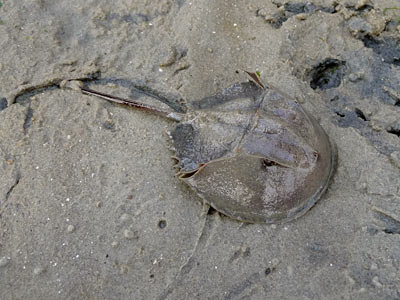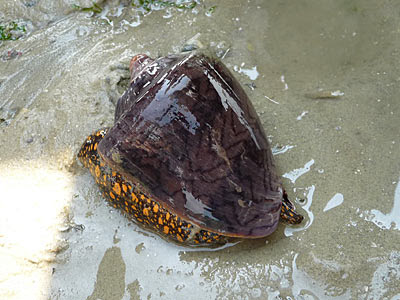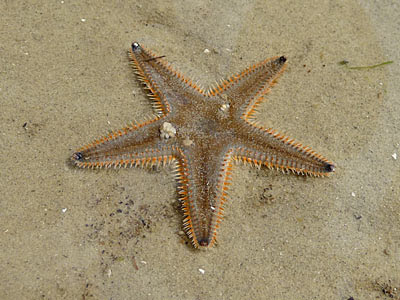Today, I had a group of my friends and colleagues with me for the Chek Jawa Walk. I must say we were really luck as we saw lots of interesting things, and it only started raining heavily after we reached mainland Singapore!
Here's a quick recap of some of the animals we saw.
At the Volunteer Hub, Adelle spotted an oriental pied hornbill (Anthracoceros albirostris) on a coconut tree.
As we walked along the Mangrove boardwalk, we were greeted by several giant mudskippers (Periophthalmodon schlosseri) skipping around on the mud surface.
Several male and female orange fiddler crabs (Uca vocans). The males are the ones with an enlarged claw.
I probably would have problem noticing this little elbow crab (Family Parthenopidae) if it was resting on the muddy substrate. Unfortunately it went onto the seaweeds, and that's how I spotted it.
This is no fish scale, but is in fact a window pane shell (Family Placunidae). It got it's name because some people use them to make into window panes.
This striped hermit crab (Clibanarius infraspinatus) has lots of tenants sharing its shell, including several slipper snails.
Our hunter-seekers also found us this living fossil - a mangrove horseshoe crab (Carcinoscorpius rotundicauda), which hasn't change much since the dinosaurs' time.
This cute little sea horse (probably Hippocampus kuda) was also found by our hunter-eekers.
And finally, I saw the bubble shell (probably Hydatina sp.) in Chek Jawa!
One of the Team Seagrass volunteers found this orange cake seastar (Anthenea aspera).
The noble volute (Cymbiola nobilis) is actually a fierce hunter which feed on other shells.
There are also several sandstars (probably Astropecten indicus).
Some sandstars don't look that healthy though. I found at least 2 more sandstars, which look like they were disintegrating, and part of their body were turning white in colour.
They were several dead salmacis sea urchin as well. This one probably died not too long ago since it still had its spines, though it's quite empty inside.
We also saw a few overturned Haddon's carpet anemones (Stichodactyla haddoni), and placed them in little tidal pools.
This poor thorny sea cucumber (Colochirus quadrangularis) also looks like it's slowly rotting.
The last time we witness all the above phenomenon was during last year's flood, which brought a lot of fresh water into Chek Jawa and many animals die! That certainly got me a little worried, since we have been experiencing heavy rainfall for the past few days.
Anyway, here's a group shot of the gang with me today. Sure hope they had enjoyed the trip!
:)
Saturday, April 12, 2008
Chek Jawa Walk on 12 Apr 2008
Subscribe to:
Post Comments (Atom)

1 comment:
Thanks! You have a lovely blog too! Great photos!
Post a Comment